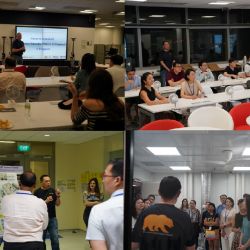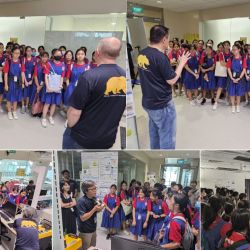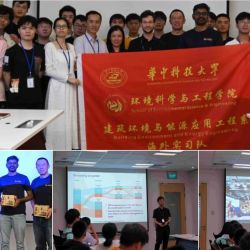2018 Building and Environment Best Paper Awards

Research collaboration between SinBerBEST 2 and UC Berkeley’s Center for the Built Environment (CBE) resulted in three Building and Environment Best Paper Awards in 2018.
The Building and Environment Journal is a global publication that shares novel building science and human interaction with the building environment study findings. It established these awards in 2007 to recognize authors for their papers’ originality, industry contributions, presentation quality, and science validity. Building and Environment selects three Best Paper Awards every year.
This is a significant achievement as there were over 3000 paper submissions in 2018, and SinBerBEST 2 and UC Berkeley’s CBE research teams won all three awards.
Building and Environment recognized the following papers:
- Automated Mobile Sensing: Towards High-Granularity Agile Indoor Environmental Quality (IEQ) Monitoring
The cost of installing and maintaining numerous sensors throughout a building makes it challenging to accurately monitor buildings. Ming Jin, an UC Berkeley EECS PhD graduate and a former SinBerBEST researcher, along with SinBerBEST 2 and CBE researchers, created an autonomous robot, or the IEQ Bot, that can navigate and map the building interior, measure indoor environmental quality using a wireless sensing platform, and precisely assess buildings.
Authors listed in order of contribution: Jin M, Liu S, Schiavon S, Spanos C.Online access: Automated mobile sensing: Towards high-granularity agile indoor environmental quality monitoring. DOI
- Development of the ASHRAE Global Thermal Comfort Database II
In summer of 2018, CBE completed compiling the biggest database in thermal comfort field study data, and released new online tools for considering thermal comfort issues, and for fostering climate-reactive and inviting low energy (as well as Zero Net Energy) building designs.
Authors listed in order of contribution: Földváry V, Cheung T, Zhang H, de Dear R, Parkinson T, Arens E, Chun C, Schiavon S, Luo M, Brager G, Li P, Kaam S et al.Online access: Development of the ASHRAE Global Thermal Comfort Database II. DOI
- Personal Comfort Models: Predicting Individuals’ Thermal Preference Using Occupant Heating and Cooling Behavior and Machine Learning
In this paper, the authors detailed an innovative approach to thermal comfort modeling that predicts individuals’ thermal comfort more accurately than using the average of a standard population. These insights were based on CBE’s “Changing the Rules” field study findings.
Authors listed in order of contribution: Kim J, Zhou Y, Schiavon S, Raftery P, Brager G.Online access: Personal comfort models: Predicting individuals’ thermal preference using occupant heating and cooling behavior and machine learning. DOI




